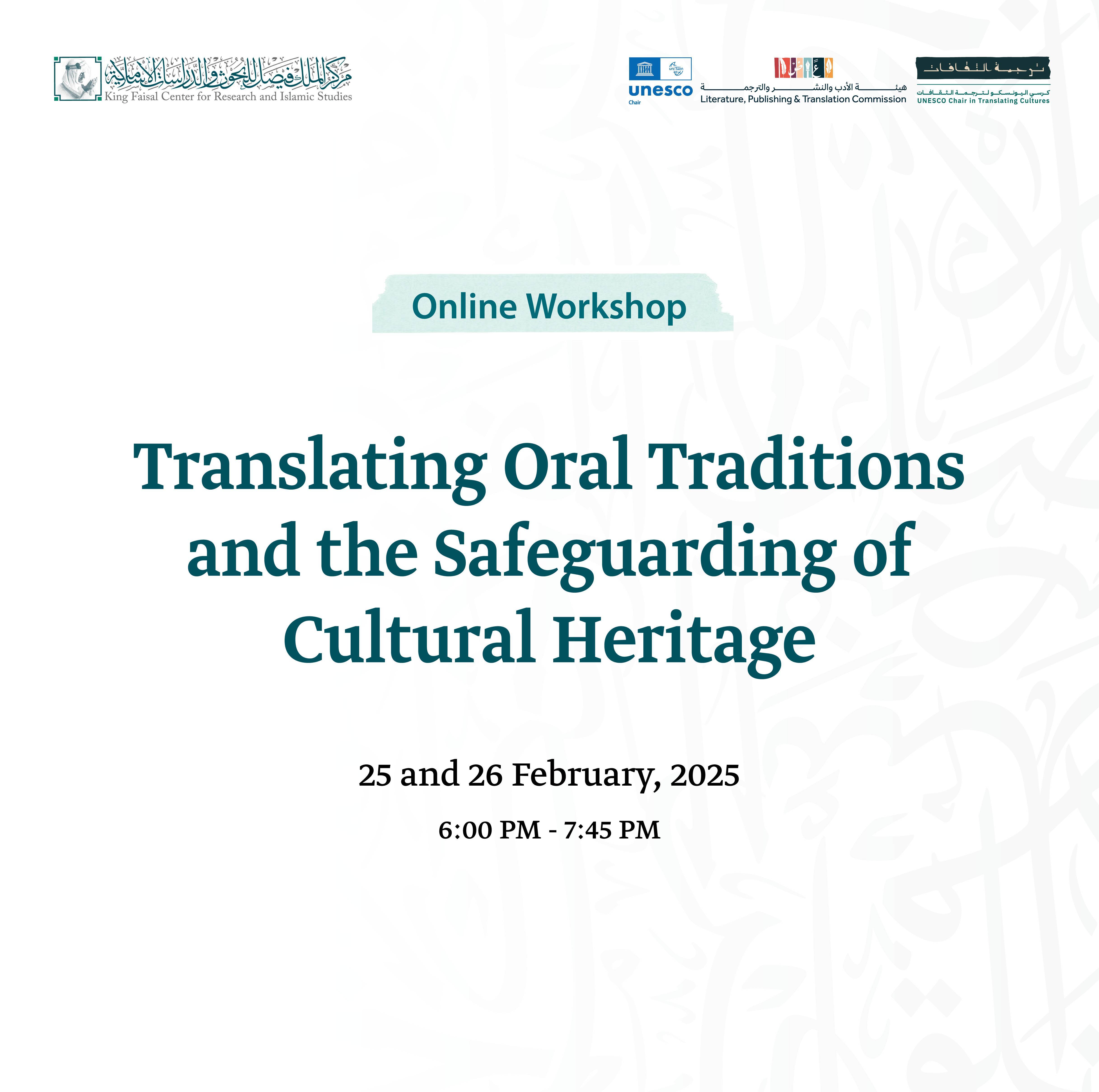25-26/02/2025
在文学、出版和翻译委员会的支持下,费萨尔国王学术与伊斯兰研究中心联合国教科文组织文化翻译讲席,与遗产委员会和其他三家支持阿拉伯世界与全球南方国家研究倡议的联合国教科文组织讲席合作,共同举办了主题为“口述传统的翻译和文化遗产的保护”的线上研讨会,会议为期2天。来自牛津大学、伦敦大学、贾瓦哈拉尔·尼赫鲁大学、巴林大学以及美国、摩洛哥和沙特的研究人员和专业人士出席。
研讨会探讨了翻译在保存文化认同和传承口述遗产方面的作用,介绍了记录奈伯特诗歌并申请将其纳入联合国教科文组织非物质文化遗产名录的相关努力。此外,研讨会还讨论了“文化翻译”在不同语言之间传递民俗文化的作用,强调其在记录民间故事与历史传说方面的重要性,以及在不同年代翻译时,如何保持原汁原味的挑战。
研讨会提及人类迁徙与印刷术在民俗文化全球传播过程中的作用,并指出研究口头文本的历史演变对于理解文化遗产保护机制及通过文化翻译重塑该机制的重要性。会议还探讨了现代科技在加强文献记录和保护遗产方面的作用,强调研究人员与地方社会之间的合作对于确保文献记录准确性和维护文化认同纯正性的重要性。
研讨会重点讨论了地方社会在保护非物质文化遗产中的作用,强调了由公共部门支持的社会性倡议,如诗歌比赛和奈伯特诗歌晚会在维护口述传统、促进其延续方面的积极意义,尤其是在海湾地区。
与会者还探讨了阿拉伯世界传统说书人所面临的挑战,聚焦摩洛哥“哈拉卡”表演的经验,尽管该传统已被列入联合国教科文组织非物质文化遗产名录,仍面临失传的风险。会议还提出将口述遗产的传承者重新定义为遗产“翻译者”的议题,提升其社会地位,保障口述遗产的延续,为这些传承者创造可持续的生计方式。研讨会建议联合国教科文组织各讲席、遗产委员会、学术机构与地方社会持续开展合作,推出阿拉伯世界及全球南方地区的口述传统可持续研究项目。

